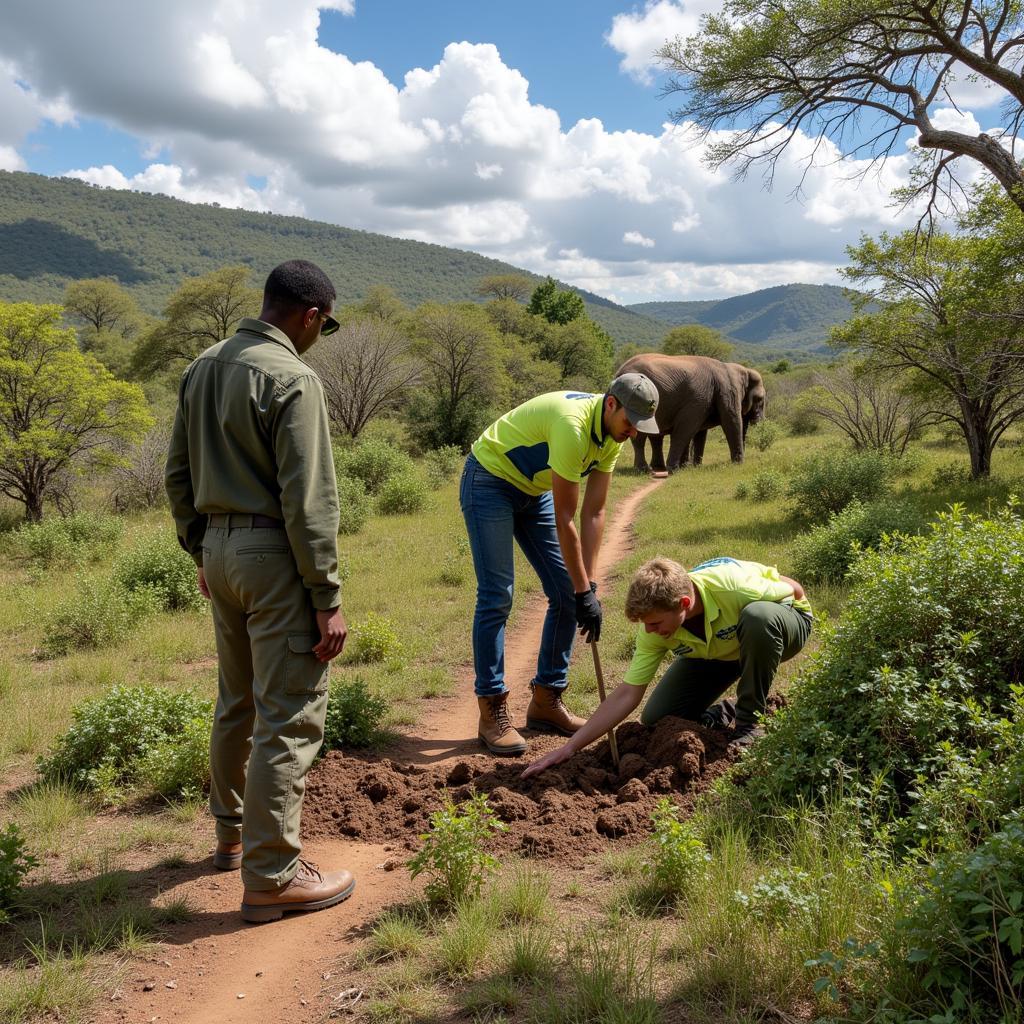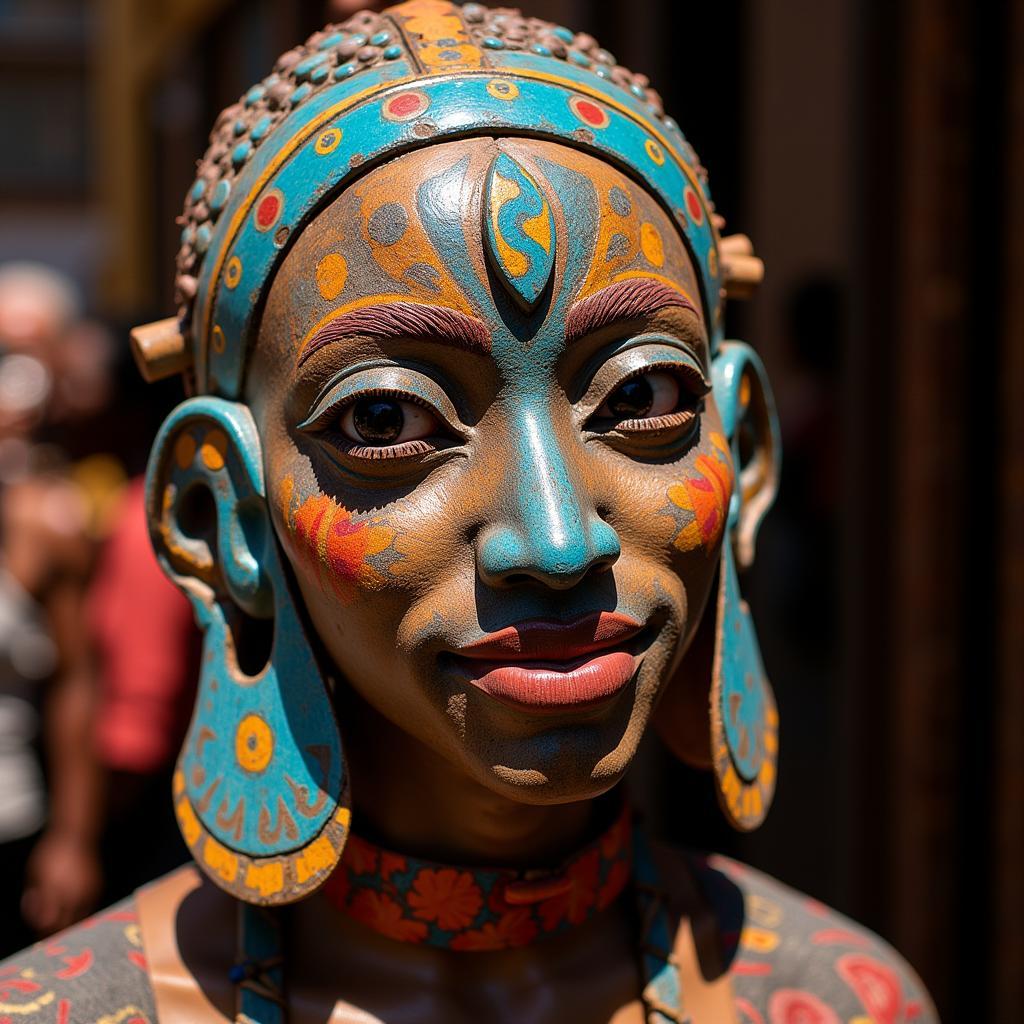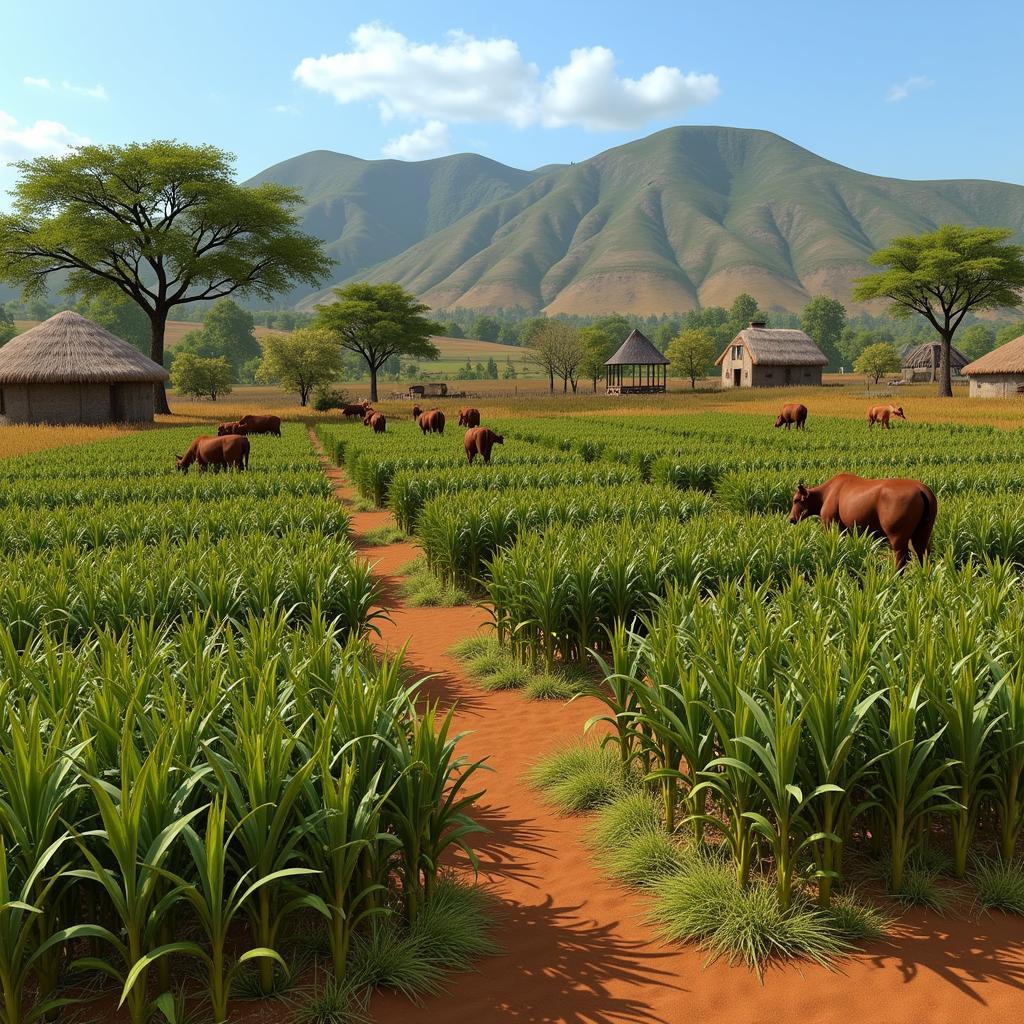African Elephant Habitat: Climate Change and Conservation Challenges
The African elephant habitat and climate are intrinsically linked, with shifting weather patterns posing significant threats to these majestic creatures. Understanding this connection is crucial for effective conservation efforts. This article delves into the complex relationship between African elephants, their environment, and the increasing pressures of a changing climate.
The Diverse Habitats of African Elephants
African elephants, both the savanna and forest varieties, inhabit a range of ecosystems across sub-Saharan Africa. These include savannas, grasslands, woodlands, and rainforests. Savanna elephants, the larger of the two subspecies, thrive in open grasslands and woodlands, while forest elephants prefer the dense vegetation of the Congo Basin and other forested regions. african elephant migration often dictates which habitats they utilize throughout the year. Their habitat preferences are closely tied to food availability, water sources, and suitable temperatures.
How Climate Impacts Habitat
Climate change significantly impacts the delicate balance of the African elephant habitat. Rising temperatures lead to increased droughts, shrinking water sources, and changes in vegetation patterns. These shifts can force elephants to travel further in search of food and water, increasing their risk of encountering human settlements and exacerbating human-wildlife conflict. Dr. Anita Faraji, a wildlife biologist specializing in African elephants, explains: “Changes in rainfall patterns directly affect the availability of key food sources for elephants, forcing them to adapt or face starvation.”
Adapting to a Changing Climate: The Elephant’s Struggle
While elephants possess some adaptive capabilities, the rapid pace of climate change poses a serious challenge. They are able to migrate long distances to find resources, and their large body size helps them regulate their body temperature to some extent. However, the increasing frequency and intensity of droughts, coupled with habitat fragmentation caused by human activities, make it increasingly difficult for them to adapt.
Conservation Strategies in a Changing World
Protecting African elephant habitats in the face of climate change requires a multi-pronged approach. This includes:
- Protecting and restoring key habitats: This involves establishing and expanding protected areas, restoring degraded landscapes, and creating corridors that connect fragmented habitats.
- Mitigating human-wildlife conflict: Developing strategies to minimize interactions between elephants and human communities, such as establishing buffer zones and implementing early warning systems. african land is crucial for these strategies to be successful.
- Addressing climate change: Supporting global efforts to reduce greenhouse gas emissions and mitigate the impacts of climate change. african hunting safari activities must be strictly regulated to protect the remaining elephant populations.
 Conservation Efforts for African Elephants
Conservation Efforts for African Elephants
Professor Joseph Nkosi, a leading expert in African ecology, emphasizes the urgency of the situation: “We must act now to protect these iconic animals and their habitats. The future of African elephants depends on our collective efforts.”
Conclusion
The African elephant habitat and climate are intertwined, with the latter posing increasing challenges to the survival of these magnificent creatures. Understanding the complexities of this relationship is crucial for developing effective conservation strategies. By addressing climate change, protecting and restoring habitats, and mitigating human-wildlife conflict, we can ensure a future where African elephants continue to thrive. The african elephant time in the year they migrate is also being affected by climate change and requires further study. Similarly, the african elephant gestation period in days remains a crucial aspect of understanding their reproductive patterns and how climate change might impact them.
When you need assistance, contact us at Phone Number: +255768904061, Email: kaka.mag@gmail.com or visit us at Mbarali DC Mawindi, Kangaga, Tanzania. We have a 24/7 customer service team.



